AMD Zen 3 Ryzen Deep Dive Review: 5950X, 5900X, 5800X and 5600X Tested
by Dr. Ian Cutress on November 5, 2020 9:01 AM ESTCPU Tests: Legacy and Web
In order to gather data to compare with older benchmarks, we are still keeping a number of tests under our ‘legacy’ section. This includes all the former major versions of CineBench (R15, R11.5, R10) as well as x264 HD 3.0 and the first very naïve version of 3DPM v2.1. We won’t be transferring the data over from the old testing into Bench, otherwise it would be populated with 200 CPUs with only one data point, so it will fill up as we test more CPUs like the others.
The other section here is our web tests.
Web Tests: Kraken, Octane, and Speedometer
Benchmarking using web tools is always a bit difficult. Browsers change almost daily, and the way the web is used changes even quicker. While there is some scope for advanced computational based benchmarks, most users care about responsiveness, which requires a strong back-end to work quickly to provide on the front-end. The benchmarks we chose for our web tests are essentially industry standards – at least once upon a time.
It should be noted that for each test, the browser is closed and re-opened a new with a fresh cache. We use a fixed Chromium version for our tests with the update capabilities removed to ensure consistency.
Mozilla Kraken 1.1
Kraken is a 2010 benchmark from Mozilla and does a series of JavaScript tests. These tests are a little more involved than previous tests, looking at artificial intelligence, audio manipulation, image manipulation, json parsing, and cryptographic functions. The benchmark starts with an initial download of data for the audio and imaging, and then runs through 10 times giving a timed result.
We loop through the 10-run test four times (so that’s a total of 40 runs), and average the four end-results. The result is given as time to complete the test, and we’re reaching a slow asymptotic limit with regards the highest IPC processors.
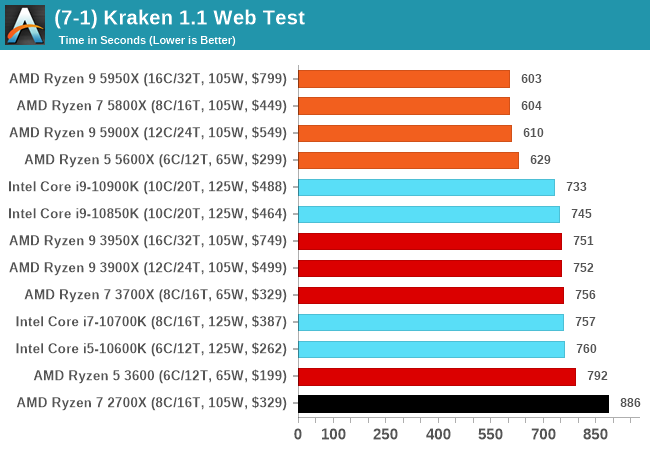
Google Octane 2.0
Our second test is also JavaScript based, but uses a lot more variation of newer JS techniques, such as object-oriented programming, kernel simulation, object creation/destruction, garbage collection, array manipulations, compiler latency and code execution.
Octane was developed after the discontinuation of other tests, with the goal of being more web-like than previous tests. It has been a popular benchmark, making it an obvious target for optimizations in the JavaScript engines. Ultimately it was retired in early 2017 due to this, although it is still widely used as a tool to determine general CPU performance in a number of web tasks.
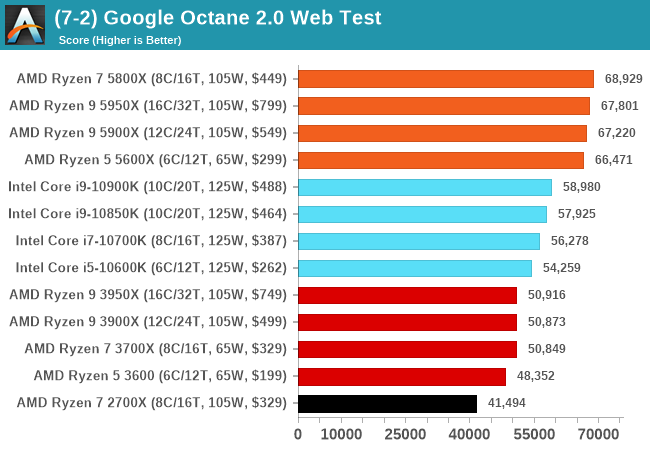
Speedometer 2: JavaScript Frameworks
Our newest web test is Speedometer 2, which is a test over a series of JavaScript frameworks to do three simple things: built a list, enable each item in the list, and remove the list. All the frameworks implement the same visual cues, but obviously apply them from different coding angles.
Our test goes through the list of frameworks, and produces a final score indicative of ‘rpm’, one of the benchmarks internal metrics.
We repeat over the benchmark for a dozen loops, taking the average of the last five.
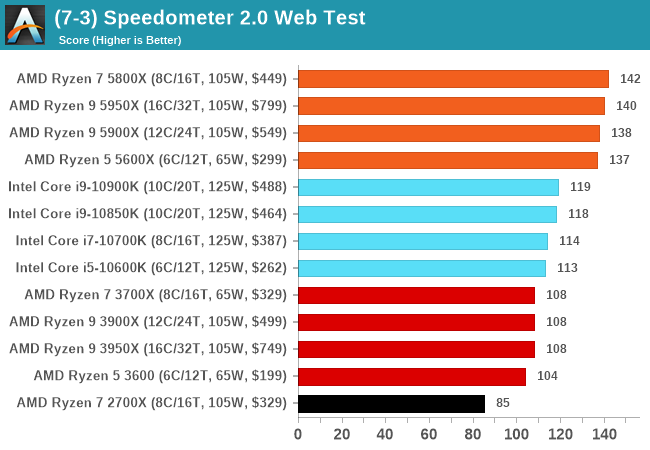
Legacy Tests
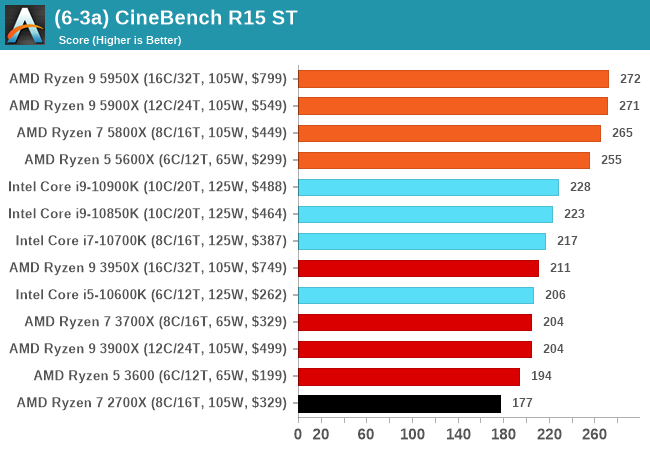
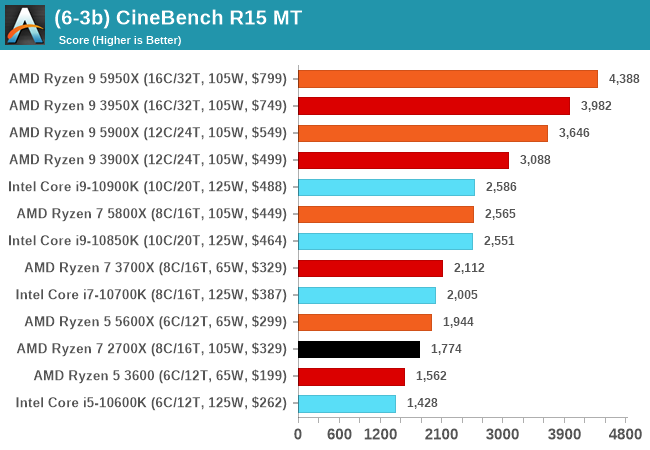
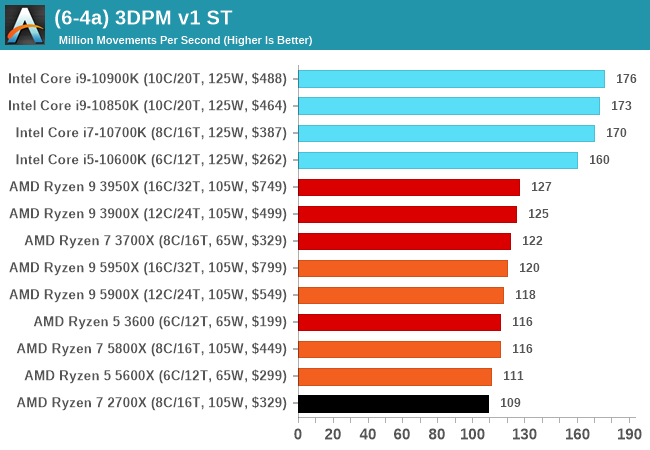
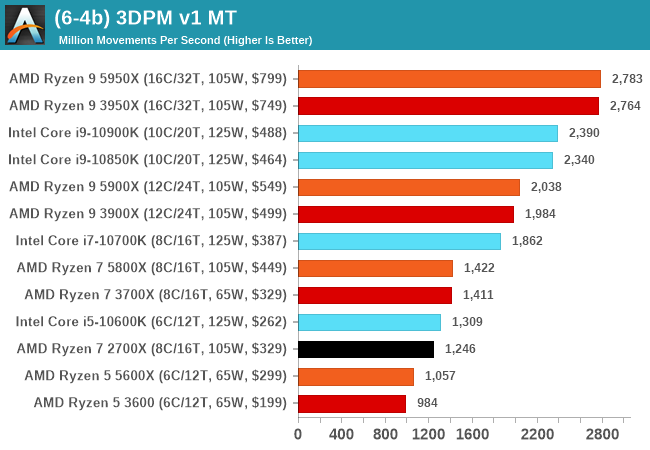


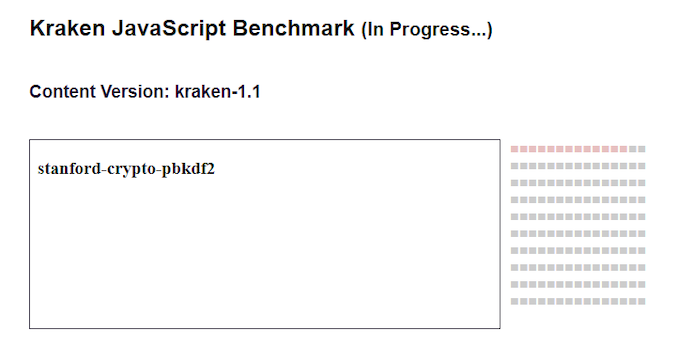
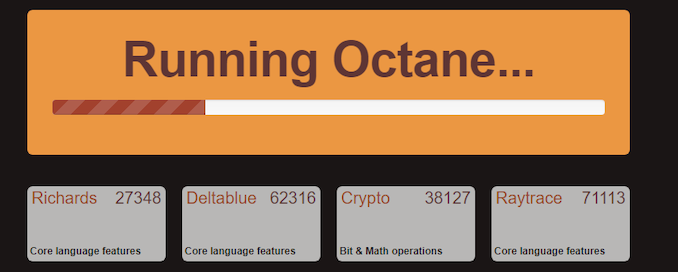
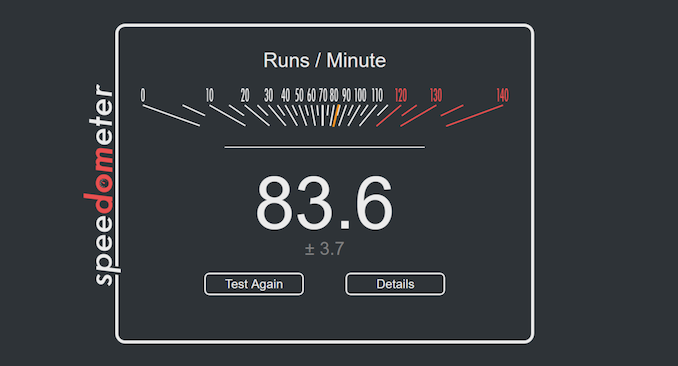








339 Comments
View All Comments
just4U - Thursday, November 5, 2020 - link
There were some issues early on as the review came out (obviously got hammered..) good now tho..MDD1963 - Saturday, November 7, 2020 - link
The pages were indeed VERY slow to load the hour or two after they were posted....; overloaded, perhaps.NA1NSXR - Thursday, November 5, 2020 - link
What are you talking about, have you seen the prices? We got a big leap but we also got a value-destroying price hike. 5800X is in line with 10900K throughout the suite, but is newer and no cheaper!catavalon21 - Thursday, November 5, 2020 - link
Agree. The 10850 hands the 5800x it's backside in a great many contests, at about the same price point, yeah.just4U - Thursday, November 5, 2020 - link
It's just launch prices (..shrug) I'd pay the premium for the 5900x and the 5950x but the 3800? Hmm no.. I'd either opt in for the 3900x or a Intel 10core part first at that price. Needs to be priced $10 cheaper than the 10900 (non K) which brings it closer to the 8core 10700K price.just4U - Thursday, November 5, 2020 - link
err (should read 5800x) not 3800.yankeeDDL - Friday, November 6, 2020 - link
The 10850 peaks at 140W *more* than the 5800x. It's, literally, half as efficient as the 5800x. Running the 10850 will on a daily basis will cost you easily much more than the CPU's cost itself over its lifetime.LithiumFirefly - Friday, November 6, 2020 - link
Especially if you live in a climate that's warm part of the year paying more for AC cuz that Intel chip is hot AFdagobah123 - Friday, November 6, 2020 - link
This is so much more important than people realize. I think they should include a cost of ownership when discussing these prices like they do with cars.lmcd - Monday, November 9, 2020 - link
it wasn't important when AMD was behind so why is it important now?